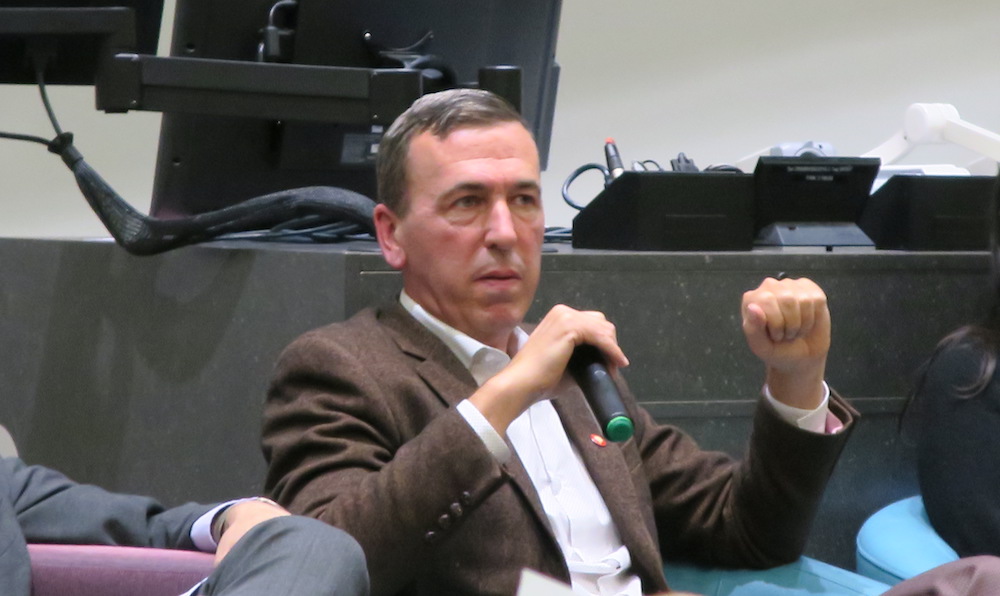Research published this morning by Environmental Defence Canada concludes that adoption of the powerful Canadian Association of Petroleum Producers lobby group’s election wish list would increase Canadian greenhouse gas emissions by 116 million tonnes of CO2 by 2030.
“In that scenario, Canada’s oil and gas sector would be emitting 311 million tonnes, making emissions from that one industry representing one-fourteenth of the Canadian economy greater than the emissions of 170 countries in the world,” the report stated.
This goes to the respected Toronto-based environmental group’s assertion well-funded fossil fuel industry lobbying is the single biggest barrier to effective climate action being taken by Canada.
“Oil and gas companies haven’t just played an outsized role in emitting GHGs and accelerating climate change,” said the report, which was put together for Environmental Defence Canada by the EnviroEconomics research organization. “Their lobbying efforts have also contributed to weakening existing environmental policies and killing or delaying proposed climate policies.”
The report noted that academic research shows corporate fossil fuel lobbyists met with Canadian government officials about 11,000 times between 2011 and 2017. That’s eleven thousand times — not a typo.
Fossil fuel industry lobbying sought to weaken or kill six important areas of environmental protection, the report said: environmental assessment rules, water protection, carbon-pricing policies, methane controls, impact assessment and clean fuel standards.
The report also accuses some of Canada’s major fossil fuel companies of using subsidiaries in foreign tax havens to avoid taxes, although the researchers said they were unable to estimate the amount of money that may have been squirrelled away abroad.
If CAPP’s wish list were granted after the October 21 federal election, Environmental Defence Canada said, GHG emissions from the oil and gas sector “would use 60 per cent of Canada’s 2030 carbon budget under the Paris Agreement.” It noted that the sector, despite its power and influence, represents 7 per cent of Canada’s gross domestic product and 1.3 per cent of Canada’s employment.
The report also noted that between 2000 and 2018, while oil production in Canada has increased by 80 per cent, royalties paid by the sector have plummeted by 63 per cent and the corporate taxes it pays have fallen by more than half.
“Canadians should demand that federal party leaders explicitly reject the dangerous agenda being pushed by the oil and gas lobby,” said Environmental Defence executive director Tim Gray in a statement accompanying the report. Gray is a former executive director of the Ontario chapter of the Canadian Parks and Wilderness Society and has a reputation for being a stickler for accuracy in research.
It will be interesting to see how both CAPP and Alberta’s United Conservative Party government’s “war room” react to this criticism from a credible organization.
The belligerent tactics adopted by Alberta Premier Jason Kenney, and the implication his government will hound opponents of the oil industry through lawsuits, inquiries, Trumpian Twitter storms and other techniques to suppress their free expression rights suggests the credibility of the industry with the Canadian public is waning, not the opposite.
Nevertheless, it isn’t exactly news that that CAPP and other corporate fossil fuel lobby groups continue to wield a lot of influence over policy makers and have essentially, as former Alberta Liberal leader Kevin Taft argued in his 2017 bestseller Oil’s Deep State, “captured” the government of Alberta regardless of which party is in power at any time.
“A swath of Alberta’s important democratic institutions have been captured by the oil industry,” Taft wrote in a guest post on my blog two years ago. “I spent 11 years in the legislature and all the major political parties — sometimes even the PCs — asked tough questions about royalties, the environment, and reclamation. Now there is barely a murmur, not because these issues have been solved but because political parties have become instruments of the industry.”
Toward the end of former prime minister Stephen Harper’s Conservative federal government, which hoped to transform Canada into an “energy superpower” despite growing concern about global warming, Environmental Defence Canada’s charitable status was attacked by the Canada Revenue Agency for opposing the government’s pipeline policies.
Before moving from Ottawa to Alberta, Kenney was a senior minister in Harper’s cabinet and a trusted lieutenant of the prime minister.
The audit of Environmental Defence Canada by the CRA, which had been thoroughly politicized by the Conservative government, was based on a complaint by EthicalOil.org, the pro-oilsands pressure group founded by Ezra Levant that has many informal links to both the Conservative Party and the fossil fuel industry.
Environmental Defence Canada never lost its charitable status, however. In December 2018, the Liberal government of Prime Minister Justin Trudeau introduced new legislation dealing with charitable status and political activity. Under the new law, charities were permitted to devote unlimited resources to public policy dialogue and non-partisan activities for the purpose of furthering their charitable mandates.
Conservative Party and UCP supporters and oil industry boosters have conspiracy theories to explain this policy decision. However, a simpler and more likely explanation is the implications of the ruling by the Ontario Superior Court the previous July that the CRA’s audits of political activity by charities infringed on Canadians’ constitutional right to free expression.
About 60 charities were targetted by the CRA before Justice Edward Morgan’s decision effectively ended the practice. The federal government dropped an appeal of the ruling in February 2019.
David Climenhaga, author of the Alberta Diary blog, is a journalist, author, journalism teacher, poet and trade union communicator who has worked in senior writing and editing positions with The Globe and Mail and the Calgary Herald. This post also appears on David Climenhaga’s blog, AlbertaPolitics.ca.
Image: David J. Climenhaga



